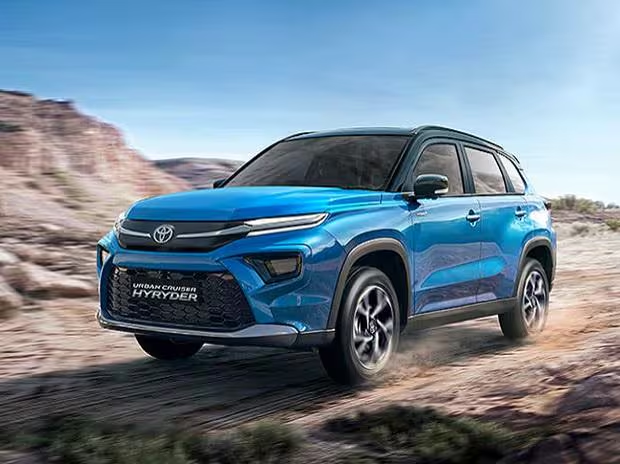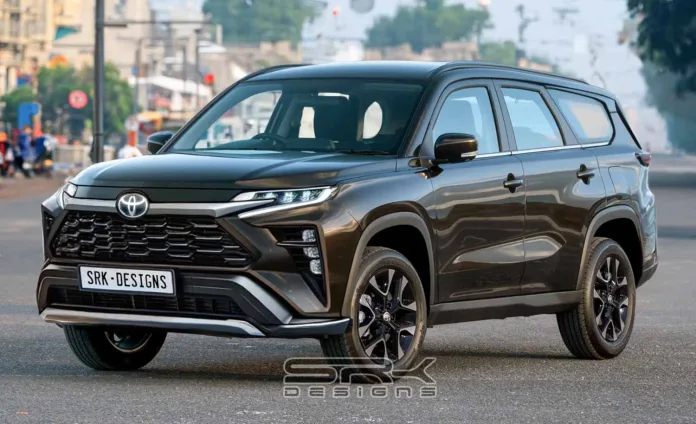In a groundbreaking announcement, Toyota, the world’s leading automaker, has revealed plans to establish a wholly owned subsidiary in Shanghai, China. This new venture will focus on the development and production of electric vehicles (EVs) and batteries, specifically for the luxury Lexus brand. With production set to begin in 2027, this move positions Toyota as a key player in the rapidly growing EV market while aligning with global sustainability goals.
If you’re curious about how Toyota is shaping the future of electric mobility, keep reading to learn why this decision is a game-changer for the automotive industry.
Toyota’s New EV Unit: What You Need to Know
Toyota’s latest initiative is more than just another business expansion—it’s a strategic leap into the heart of the world’s largest EV market. Here’s a closer look at the key details:
- A New Subsidiary in Shanghai:
Toyota will establish a fully owned company in Shanghai, dedicated to developing and manufacturing a new Lexus electric vehicle model. This marks a significant step in Toyota’s electrification journey. - Production Timeline and Capacity:
The new unit is expected to begin production in 2027, with an initial capacity of 100,000 units annually. This ensures Toyota is well-prepared to meet the growing demand for premium electric vehicles. - Job Creation:
Approximately 1,000 new jobs will be created during the initial phase, contributing to local economic growth and strengthening Toyota’s presence in China. - Partnership with Shanghai Government:
Toyota plans to collaborate with the Shanghai municipal government on carbon-neutral initiatives, supporting China’s ambitious goal of achieving carbon neutrality by 2060.

Why This Move Matters for Toyota and the EV Industry
Toyota’s decision to establish a dedicated EV and battery unit in China is not just a business move—it’s a strategic response to the evolving automotive landscape. Here’s why this development is so significant:
- Strengthening Toyota’s EV Market Presence:
As the global demand for electric vehicles surges, Toyota is positioning itself as a leader in the EV space. By focusing on the Lexus brand, Toyota is targeting the premium EV segment, which is experiencing rapid growth worldwide. - Tapping into the World’s Largest EV Market:
China is the epicenter of the EV revolution, with millions of electric vehicles sold annually. By setting up operations in Shanghai, Toyota is ensuring it remains competitive in this critical market. - Commitment to Sustainability:
Toyota’s partnership with the Shanghai government highlights its dedication to sustainability and carbon neutrality. This aligns with Toyota’s global vision of achieving carbon neutrality by 2050 and supports China’s 2060 goal. - Driving Innovation in Electric Mobility:
With a focus on developing cutting-edge EV technology and batteries, Toyota is not just keeping up with the competition—it’s setting the stage for the future of electric mobility.
What This Means for Toyota’s Future
Toyota’s move to establish a wholly owned EV and battery unit in China is a clear signal of its commitment to innovation, sustainability, and growth. By investing in the development of premium electric vehicles, Toyota is not only meeting the demands of today’s consumers but also preparing for the future of the automotive industry.
This initiative is expected to play a pivotal role in Toyota’s long-term strategy, helping the company maintain its position as a global leader in the automotive sector. With production set to begin in 2027, the new unit will serve as a cornerstone of Toyota’s electrification efforts, ensuring it remains at the forefront of the EV revolution.
Toyota’s Vision: A Greener, Smarter Future
Toyota’s latest venture is more than just a business decision—it’s a commitment to creating a greener, smarter future. By focusing on electric vehicles and sustainability, Toyota is not only driving innovation but also contributing to a cleaner planet.
As the automotive industry continues to evolve, Toyota’s bold move in China is a testament to its forward-thinking approach and dedication to excellence. Whether you’re a car enthusiast, an investor, or simply someone passionate about sustainability, Toyota’s journey into the EV market is one to watch.
Final Thoughts: Toyota Leads the Charge in Electric Mobility
Toyota’s decision to establish a wholly owned EV and battery unit in Shanghai is a monumental step in its electrification journey. With a focus on innovation, sustainability, and premium electric vehicles, Toyota is setting the standard for the future of mobility.
As production begins in 2027, this new venture will not only strengthen Toyota’s position in the global EV market but also contribute to a greener, more sustainable world. Stay tuned as Toyota continues to lead the charge in electric mobility, proving once again why it’s a name synonymous with innovation and excellence.
Also read- Why Electric Vehicles Will Be More Affordable in India by 2025?
FAQS
Why is Toyota setting up an EV and battery unit in China?
Toyota is establishing this unit to strengthen its presence in the world’s largest EV market, develop premium electric vehicles for the Lexus brand, and support global and local carbon neutrality goals
Why is China important for Toyota’s EV strategy?
China is the largest EV market in the world, making it a critical region for automakers. By establishing a presence in Shanghai, Toyota can tap into this growing market and meet the increasing demand for electric vehicles.
How does this move align with Toyota’s sustainability goals?
Toyota’s collaboration with the Shanghai government on carbon-neutral initiatives aligns with its global vision of achieving carbon neutrality by 2050 and supports China’s goal of reaching carbon neutrality by 2060.
What type of vehicles will Toyota produce at this new facility?
The facility will focus on developing and manufacturing a new Lexus electric vehicle, targeting the premium EV segment.
How does this move impact Toyota’s global EV strategy?
This initiative strengthens Toyota’s global EV production capabilities, ensuring it remains competitive in the rapidly evolving automotive industry and supports its long-term electrification goals.


